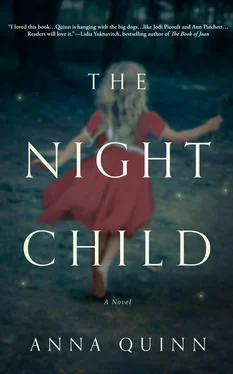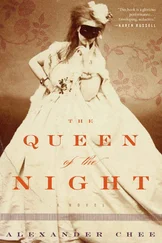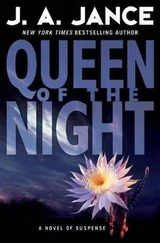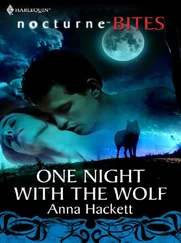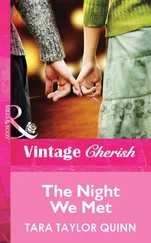She sits there, in the space between sentences, trying to stop thinking about what she knows, but she can’t stop thinking about any of it. She’s had a nightmarish sleep, images of long fingers, purplish and hard, filling up spaces, making it hard to breathe, waking her in a sweat, the cries and screams of other patients in the background, and she hadn’t known then what was real or what was imagined or if someone was dying or not.
He leans forward and looks at her for a moment. “You must be exhausted. This is hard. Really hard.” He pauses, says, “And, you released a lot. But give it time, okay? This isn’t a process you can rush.” He takes his glasses off and cleans them on his shirt hem, puts them on again. “That you even faced the memories indicates a tremendous step forward.”
The flashbacks yesterday had terrified her, felt more painful than she thought she could handle, more than she could contain. And yet, she’d survived . Weary and exhausted and strangely lighter. A young woman carrying two grocery bags tramps up the hill. Nora wishes she were the one carrying groceries home, making dinner, Fiona at her side. Can I go home now? Can I trust myself not to run blindly into the street again?
“Do you want to talk about yesterday, or would you rather just rest? We don’t have to talk about anything today.” His voice is cautious.
She looks at him, her hands folded in her lap on top of the little yellow notebook, the pen stuck into the spiral. She plucks it out, opens the notebook, and writes: I would like to be alone today. I’d like to look out this window. I’d like to sleep.
“Okay,” David says and stands up to leave.
But then she remembers and has to know, scribbles fast: Did you tell Paul about Margaret?
David reads her note, runs a hand through his thick white hair, and looks at her. Sits back down. Finally he says, “He didn’t take it well.” The lines around his mouth and across his forehead are deeper than she remembers.
After a moment, she writes: He thinks I’m crazy—like Sybil. It’s true, admit it.
She knows by David’s expression she’s right, even though he says, “Paul just needs time. This on top of the accusation, I don’t know. It’s a lot to deal with. And it’s not unusual for a spouse to shut down or find fault with the person in crisis. Your pain may have brought up some pain of his he doesn’t want to deal with, or he might be someone who’s ashamed of having an imperfect life, I have no idea. He didn’t want to talk about it.”
Down the hall someone plays the radio, a country and western channel. She turns her face to the window. Outside, a man in a red stocking cap and long wool coat stands in the snow and plays a guitar with fingerless gloves. Next to him sits a ruffled Irish wolfhound. The wolfhound faces the musician, its head held high. A small crowd has gathered, and the wolfhound’s eyes never leave the musician. Nora wonders if they are listening to the music or just interested in the massive size of the wolfhound or its attentiveness to the musician or all three things.
“Do not for a minute doubt yourself. You’re a hero,” David says. “You’re walking right into the flames to save a self. Your self. Do not doubt that for a minute.
“James listened carefully,” David says. “But he didn’t want to talk about it. He wants to talk to you.”
She can see James listening to David, his arms folded across his chest, his face concentrated, trying to understand, trying not to judge, the way he looks at art and things in life he doesn’t understand.
She writes: I need to see all of them. Paul. James. Fiona too. I can’t be away from her any longer.
“Oh, Nora. Jeez. You’re taking on a lot. You don’t want to wait until your voice comes back?”
I need to see all of them. I want to see Paul first, though—alone. Please. Can you arrange this for me?
“I have to tell you—this may be very difficult. Because Paul isn’t in a great place he may lash out, he might trigger something in Margaret. And James—if you decide to talk to James about this, it may be—well, he may not believe you. It was hard to read his face. And sometimes when siblings …” he hesitates. “More often than not, siblings turn against the one who breaks the secret—make her feel guilty, crazy, call her a liar. They need to get rid of the ugliness … and you’re the one who brought it. You’re the messenger of a dirtied legacy—”
James wouldn’t do that.
“I’m just saying he might feel he has to protect himself. Just be prepared.”
Protect himself from what?
“From the fact that his father was a child molester.”
I want to see him. I don’t want to talk about anything with him right now. I just want to see him.
“Okay, okay. I’ll arrange for a visit. And Paul?”
She is silent for a few moments, then writes: I want to see him.
“Nora, you’re in charge here. If you really want to see him, that’s okay. I’ll talk to him.”
She mouths, “Thank you.”
David gets up to leave but remembers something. He pulls a photograph from a file in his backpack, hands it to her. “James asked me to give this to you.”
She holds the photo with both hands. A little girl with blue eyes looks out at her. The girl wearing the Valentine’s dress. Nora gasps as if she’s just had the wind knocked out of her. She has never seen this picture before.
“She was born with a sacred sense of trust,” David says.
Nora stares at the girl for a long time. The blue eyes of her. The truth of her.
“Nora, you did nothing to cause his horrific behavior. You could have danced around naked in front of him, and he shouldn’t have touched you. He abused you because of the way he was, not because of you or your behavior. This isn’t about sex. It’s about power. It’s about control. His lack of power. His need to control. He derived power from taking what he wanted. He needed that power. And you were an easy target. He didn’t just cross boundaries. He obliterated them.”
She sets the picture on the windowsill. Picks up her notebook and writes: She could have run away. She was smart. Why didn’t she just run away?
“Why do you think you didn’t?”
I don’t know. I was terrified. Where would I go?
She realizes she’d written I instead of she.
“Nora, I’m going to ask you something. You don’t have to answer it if you’re not ready.”
She fixes her eyes on him.
“Do you remember how your father’s eyes looked—when he hurt you?”
His eyes. His blue eyes.
It was as if he didn’t see me. As if I wasn’t there.
David takes the note and reads it. “You weren’t,” he says. “In short, you didn’t exist while he hurt you. As profoundly sad as it is, you were invisible to him.”
Invisible. To the man most important to her. Her father.
“He was in his own self-absorbed world. You were—and I know this is hard to hear—”
Nora nods for him to continue, nervous she’ll split into Margaret. She wants to hear this for herself.
“You were an object. A way for him to satisfy his need for control, a way to dominate. Even if you had cried out, told him to stop, he probably wouldn’t have heard you. He didn’t see you. He had no awareness of your pain.”
Sweat under her arms, her breasts. Loss kicking her hard in the stomach.
Читать дальше
